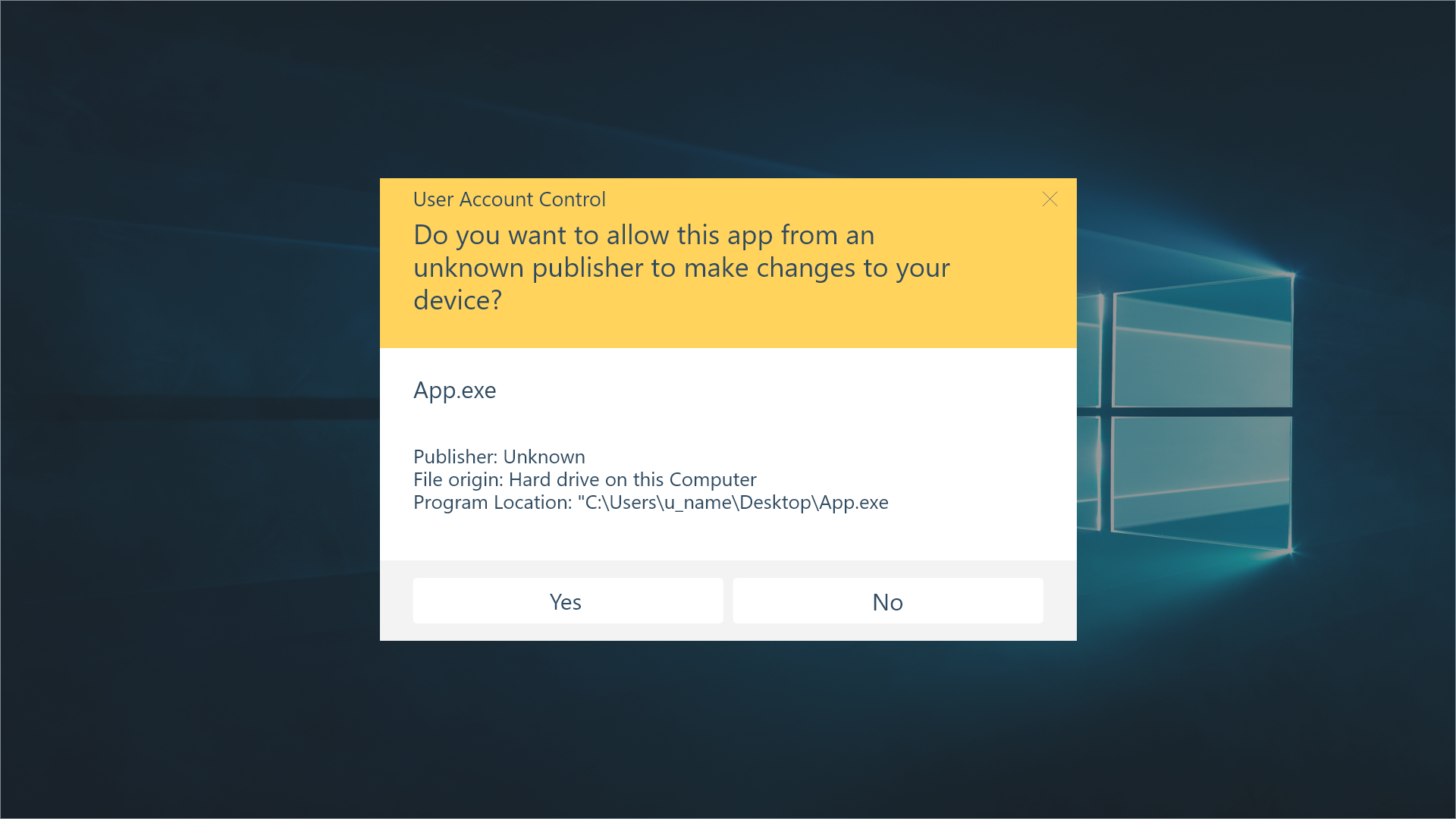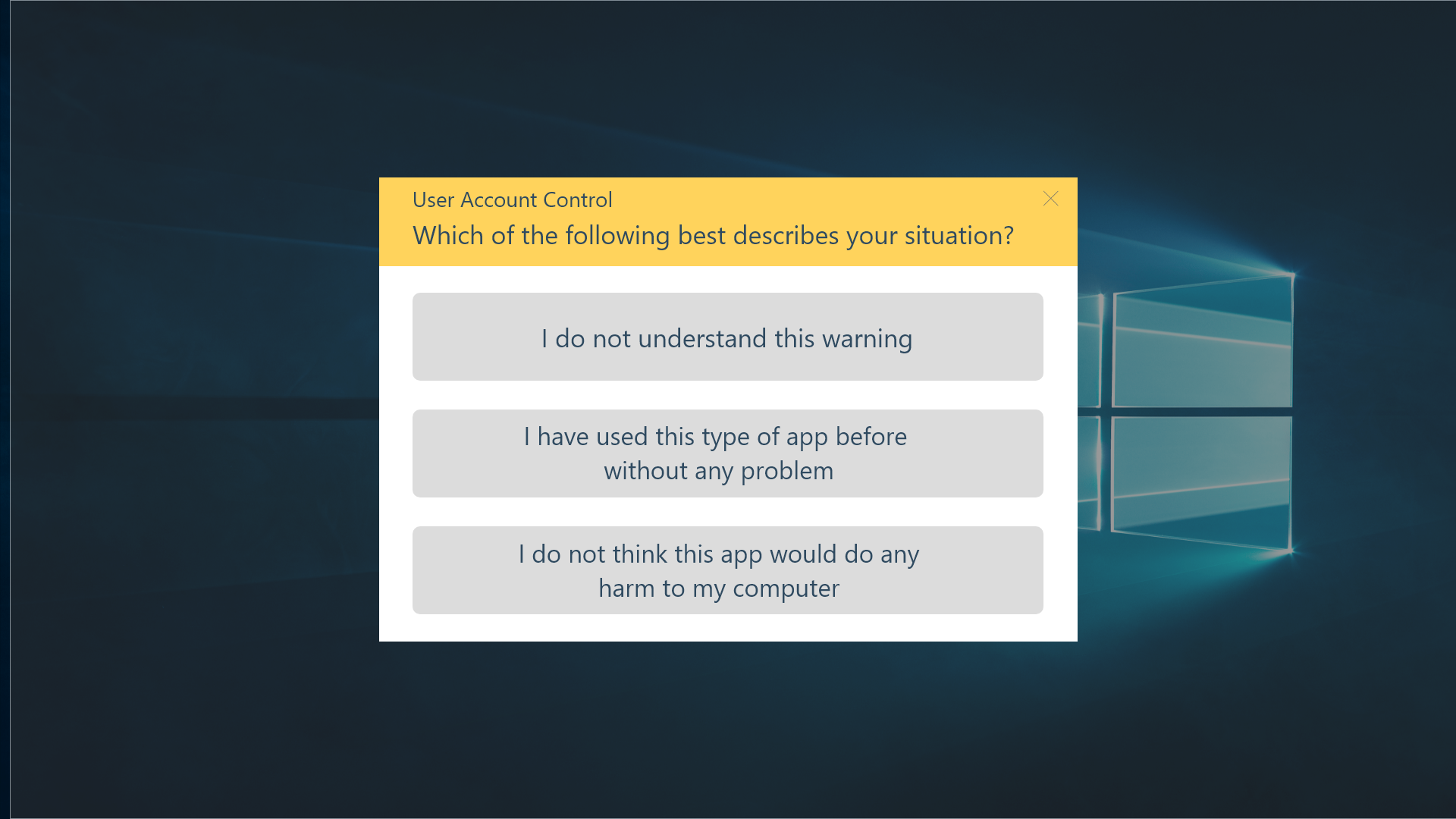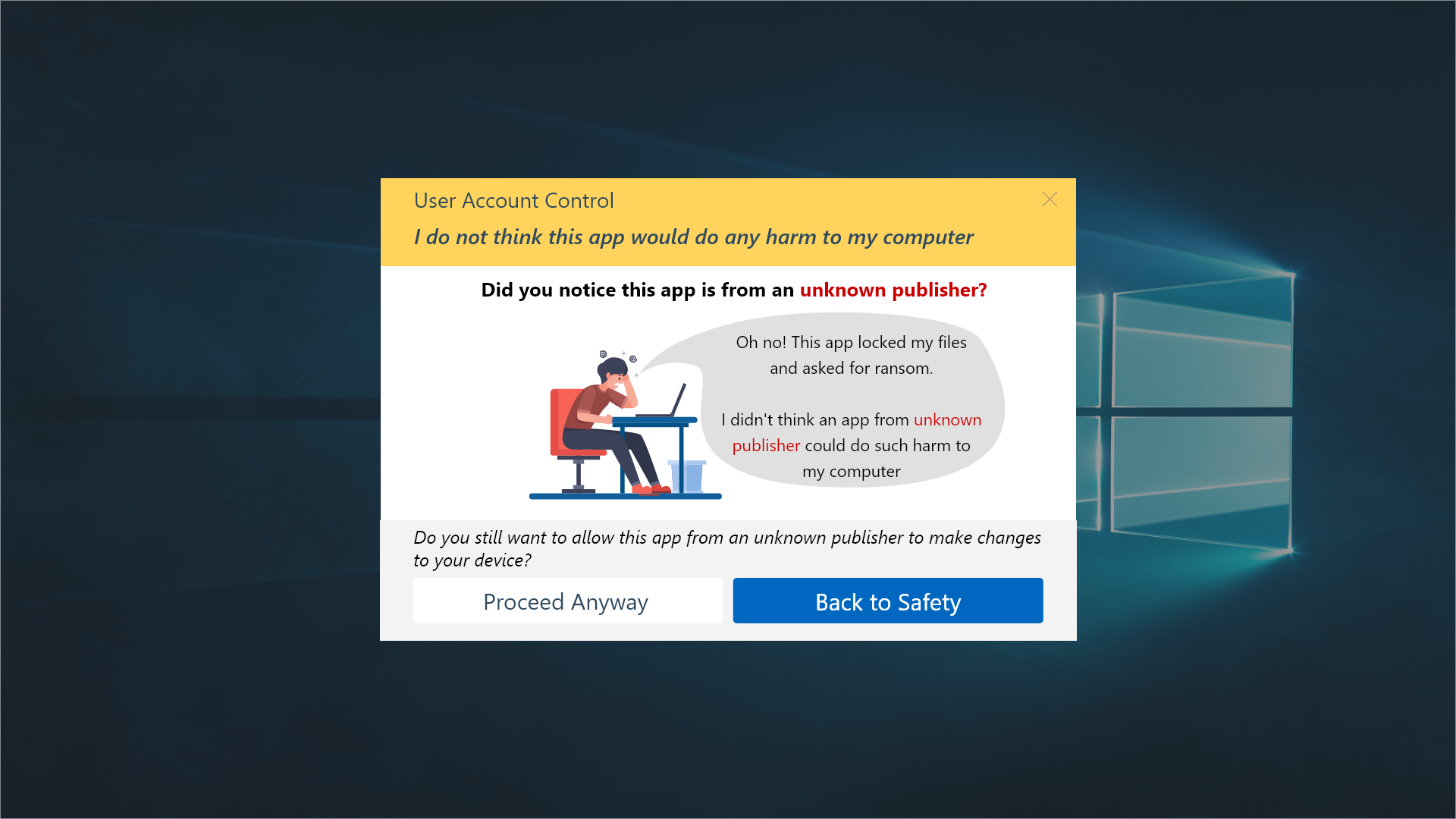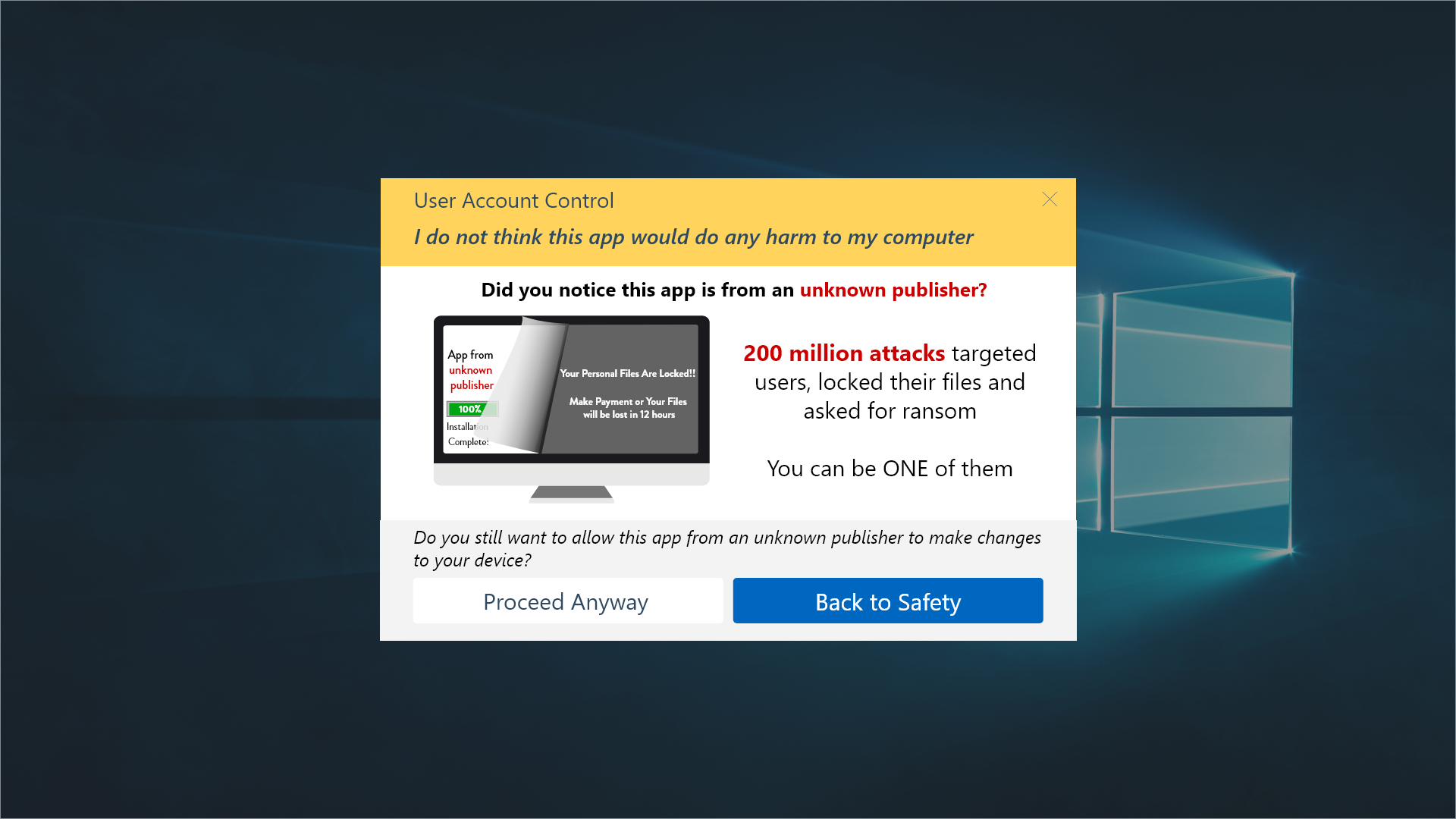Published in HCI for Cybersecurity, Privacy and Trust, Lecture Notes in Computer Science. Presented in 25th International Conference on Human-Computer Interation (HCII 2023) (See full paper)
Abstract:
With over 1.4 billion users of Windows 10, it is the most widely used operating system in the world. In Windows, applications from unknown publishers are popular due to mass availability and ease of access. Installing such applications can lead to malware infection, including viruses and ransomware. Therefore, we explored the design of interventions to prevent the users from installing applications from unknown publishers. To this end, we conducted a lab study with nine participants to understand the perceptions and behavior of users toward the designed interventions. Then, we conducted an online study with 256 participants to evaluate the impact of reflection, contextualization, and persuasion used in the finalized interventions. In summary, our findings provide valuable insights into understanding the needs and expectations of the users for usable and effective interventions against applications from unknown publishers. Based on our findings, we provide guidelines for future research.

Default Windows Notifier

Reflective Design

Pathos Treatment
